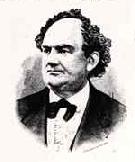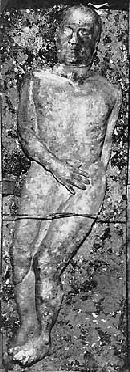

American legend P.T. Barnum is better known for saying “There’s a sucker born every minute.” A charmingly appropriate legacy, that, since it wasn’t he who said it. But the story of how that quote came to be associated with him shows how Barnum came to be known as “The Prince of Humbugs.” In our Archæological Forgeries section, you can read about the Cardiff Giant. A three-thousand pound hunk of gypsum in the form of a ten-foot-tall man that was “discovered” on a farm in Cardiff, New York in October, 1869. Barnum avidly followed the news of the Giant’s discovery and the speculations about its origin, and thought it would make a fine addition to his own exhibits. He told the owner of the farm on which the Giant was found that he’d be willing to pay $60,000 (U.S.) to be able to exhibit the Giant for three months. No dice. By 1871, Barnum was exhibiting the Cardiff Giant anyway — only it was his own Giant. He’d had a replica carved, reasoning that a forgery of a fraud was no crime. He even went so far as to claim that the original, owned by a group of investors headed by David Hannum, was a fake and that the new sculpture was the “real” Cardiff Giant. Hannum sued, but lost — and was quoted as saying of the crowds lining up to see Barnum’s phony phony: “There’s a sucker born every minute.” So that’s how the quote got associated with Barnum. But it’s easy to understand the confusion. Barnum was, after all, a man whose career in show business got started with him purchasing and then exhibiting a woman named Joice Heth, who claimed to be the 161-year-old childhood nurse of George Washington. His gift for catching the public eye was unrivaled. Irving Wallace, in his biography The Fabulous Showman, tells this story of how Barnum created a buzz for his Museum:
|
 P.T. Barnum  The Cardiff Giant See also: |
|
|
| On This Day in Snigglery | November 28, 1987: The infamous Tawana Brawley media hoax begins. (See News Trolls for more info) |
|---|---|